Sprouts are considered by many to be the most vivid and complete food that one can consume. They are low-calorie, easily digestible and are a valuable and important source of energy. Regular consumption of sprouts will have overall beneficial impact on your health after a few days you will begin to see the external signs - sprouts improve the skin and hair.
These small germinated seeds accelerate metabolism and help remove toxins from the body. This automatically makes them loved for many diets.
If you do not already know, you can grow sprouts quite easily at home. Fresh sprouts are eaten in fresh salads that can energize the whole day. Our little friends load the body with most enzymes from all other foods, as well as quickly and easily absorb vitamins and minerals and precious chlorophyll.
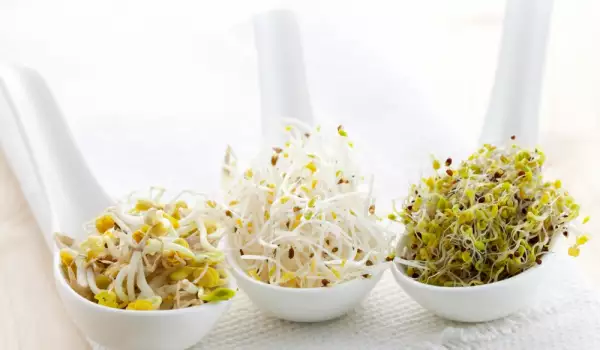
Composition of sprouts
Various sprouts have different chemical content and materials, but they are rich in fiber and nutrients. Sprouts supply the body literally all necessary materials - a significant amount of protein, lecithin, omega-3 fatty acids, starch, vitamins (B6, B9, B12, H). They respond directly to proteins and stimulate the circulatory system, increasing the oxygen capacity of the blood.
In soya beans, you find vitamin H, and coenzymes. It is an extremely powerful enabler for the growth of muscle cells. Actively participates in the processes of degradation of carbohydrates and fatty acids, thus provides a significant amount of energy to the body.
Sprouts are rich in vitamins A, C and E, minerals sodium, potassium, calcium, magnesium, phosphorus, iron, antioxidants and isoflavones that actively fight free radicals and aging of cells.
Types of sprouts
Soya sprouts - well known long ago in Eastern cultures for its healthy qualities. They are low-calorie and combat stress. Have a high content of fat, protein, minerals (especially calcium and iron) and vitamins (A, C, C1 and C2);
Broccoli sprouts - they have a specific flavor and are very tender. Contains 31% chlorophyll, vitamins C, P, B, K, D, A, enzymes, minerals, organic sulfur. Have a cleaning and repairing action on airway inflammation, diseases of the stomach and intestines, swelling, flu, heart disease, obesity, atherosclerosis, problems with the spleen, liver, strengthens vascular walls - a veritable green collection;
Wheat germ - rich in vitamin B, C and in particular of vitamin E, of easily absorbable calcium, phosphorus and magnesium. Reflects favorably on the skin and hair and with continued use, completely cleanses. Vitamin E is fat soluble, so add olive oil to salads with these germs.
Flax sprouts - contain flaxseed oil and accelerate digestion. They regulate the activity of the gastrointestinal tract. Full of high calcium levels and properties of several beneficial for pregnant women, adolescents and athletes. Flax sprouts maintain good levels of cholesterol and prevent cardiovascular disease;
Sunflower seedlings - true cocktail of proteins, amino acids and minerals (calcium, iron, magnesium, phosphorus, zinc, etc.). These shoots will remain fresh and youthful longer, while protecting the liver from cardiovascular diseases.
Alfalfa sprouts - they are the source of large amounts of vitamins - A, C, D, E, K and the B group, minerals - calcium, phosphorus, magnesium, copper, iron and others. and the protein and fiber.
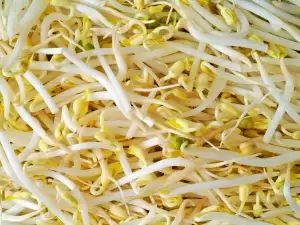
Red radish sprouts - contain notable amounts of potassium, calcium, copper, zinc, vitamin A. They have expectorant, anti-microbial and anti-inflammatory action and are very useful in cases of atherosclerosis, heart disease, fungus, ulcers, constipation, anemia, high blood pressure, angina, liver failure, kidney and gallstones increases immune defense.
There are a lentil sprouts, bean sprouts, pea sprouts, which are in no way inferior to others.
Culinary use of sprouts
Very helpful and dietetic, sprouts are widely used in a number of salads, soups and vegetable dishes. Before adding sprouts to your meals, however, you should thoroughly wash them.
What can we make sprouts from?
Sprouts can be made from almost every seed and grain that comes your way. Of course, the seeds must be suitable for the purpose. Suitable seeds are sold in grocery stores or shops for healthy eating. Have a shelf life and to germinate should be used within it.
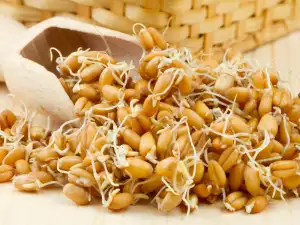
As mentioned, the most common germs are wheat, broccoli, carrots, turnips, cabbage, onions, sunflower seeds, pumpkin seeds, almonds, rye, barley, buckwheat, alfalfa, arugula, watercress, mustard, linseed, soybean, Chinese beans, chickpeas, lentils and more.
Growing sprouts
It is best to use non- oily grains for this purpose. Linseed is not appropriate for its mucus. The first step is to thoroughly wash the seeds and put them in a suitable container. Cover it with from 2 to 5 times more water and let them stand for about 24 hours in a dark and at room temperature (about 70°F (22 °C)). The amount of water depends on how many times you grow the seeds. For example, alfalfa swells twice as much as lentils, chick peas grew threefold and more.
Drain the water well and leave to germinate. In parallel, wash and drain the water well in the morning and evening. Keep the container in a dark place, until they sprout up. Then you can keep them in a bright spot without direct sunlight. The green leaves will appear fast and will be loaded with lots of chlorophyll.

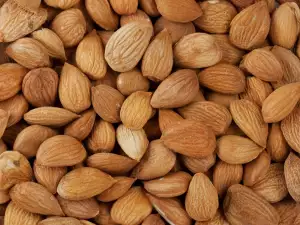
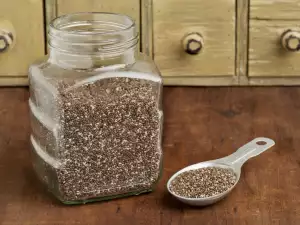
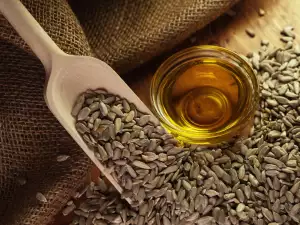
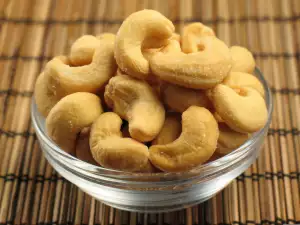
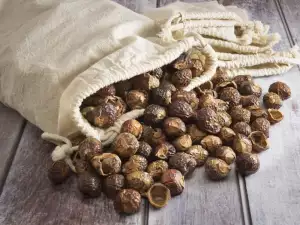
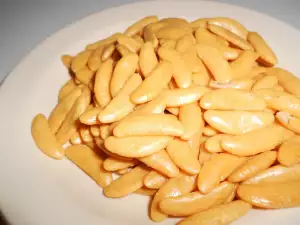
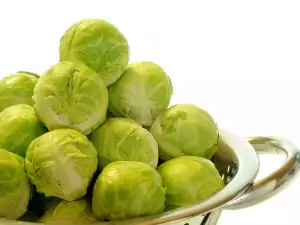

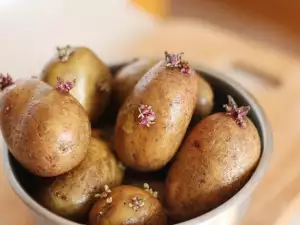
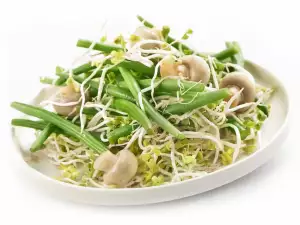
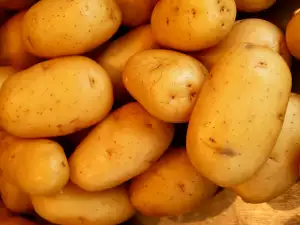
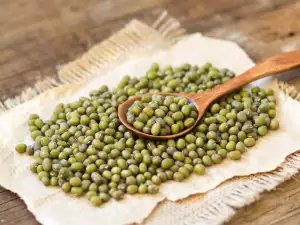
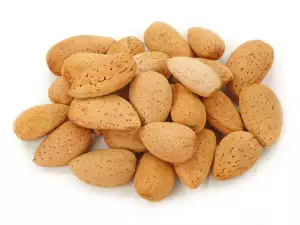

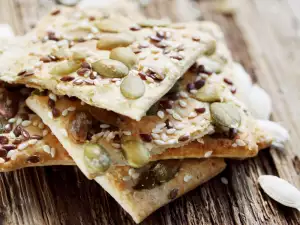




Comments